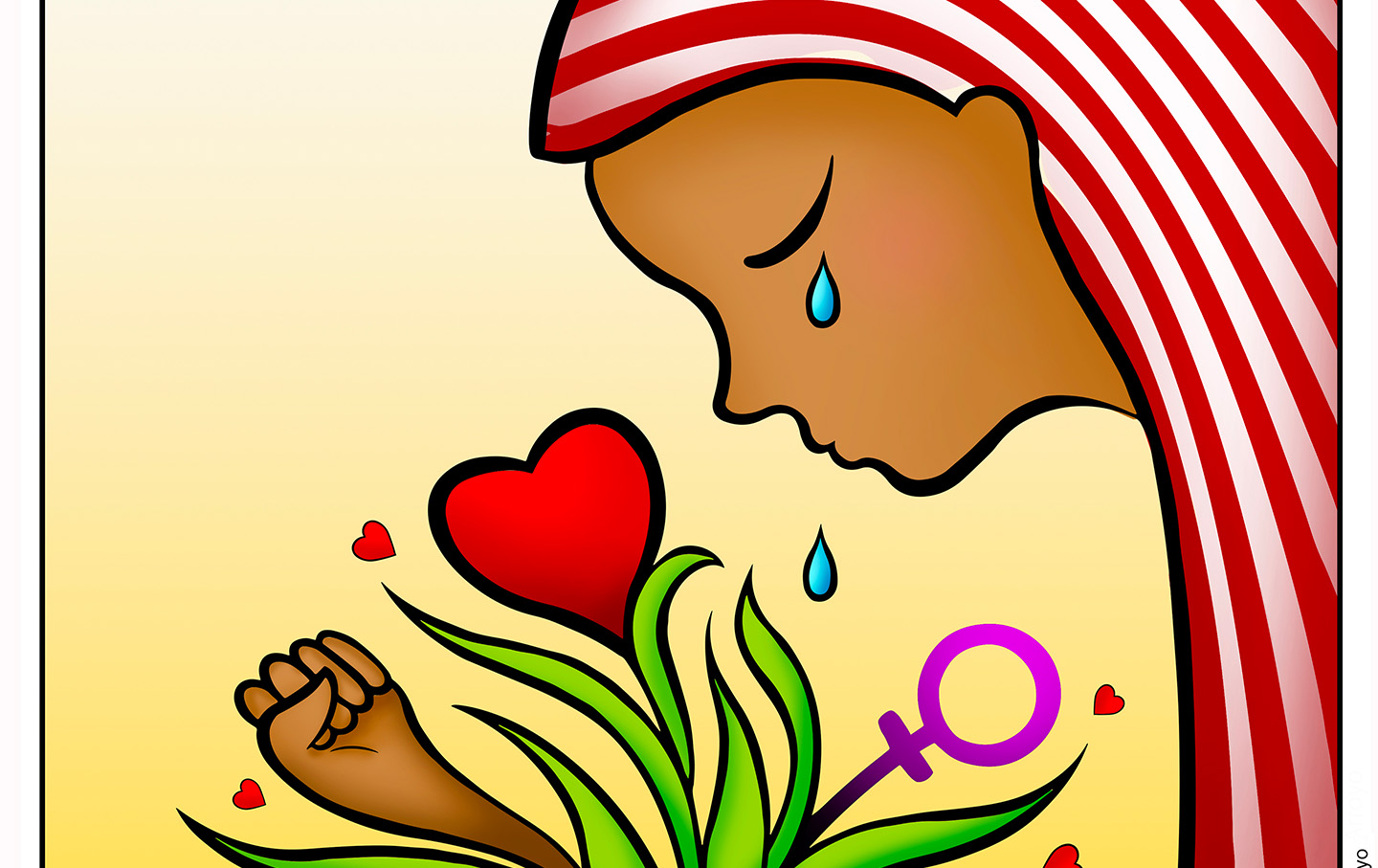UChicago’s Arrest of Pro-Palestine Activists Shows Its Flimsy Commitment to “Free Speech”
Over two dozen students and faculty were arrested during a peaceful sit-in by UChicago United for Palestine.
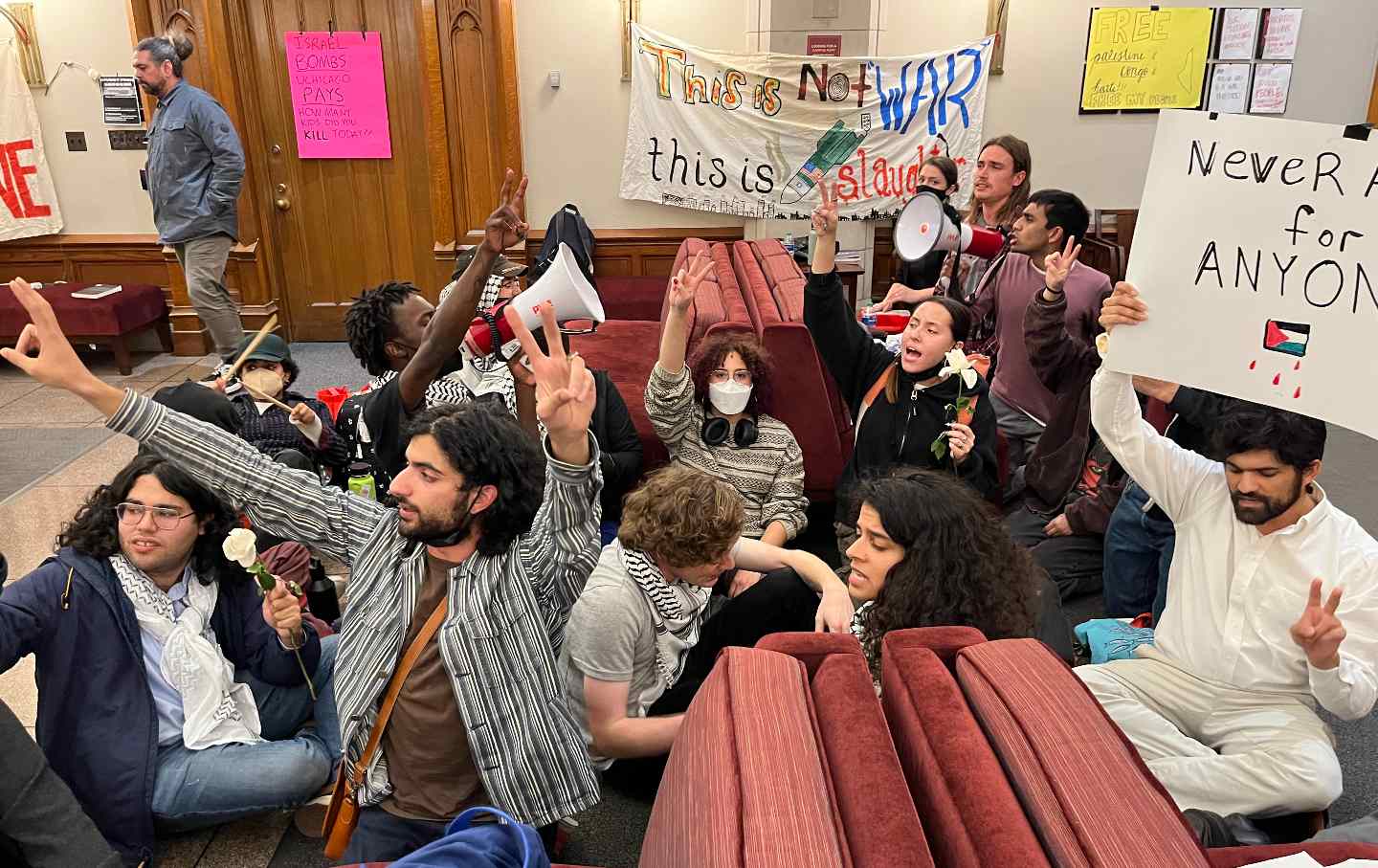
Members of UChicago United for Palestine during a peaceful sit-in in Rosenwald Hall.
(UCUP)On November 9, a handcuffed Palestinian student at the University of Chicago kicked open the ornate, wooden inlaid door of Walker Museum, making himself visible to a crowd of more than 100 members of the UChicago community gathered in emergency support on the campus quad.
Smiling, with a keffiyeh wrapped around his head and a sign reading “Palestinian children deserve life” taped to his chest, Youssef Hasweh began to chant: “UChicago you can’t hide! You invest in genocide!” Behind him, two University of Chicago Police Department (UCPD) officers worked quickly to get his handcuffs off.
Hasweh was the second student arrested that day by the UCPD, just seven hours after more than 30 members of UChicago United for Palestine—including myself—began a peaceful sit-in of the Rosenwald Hall lobby.
Around 11:30 am, UCUP, a coalition of on-campus student activist groups, announced that its members were planning to occupy the lobby, which operates as the UChicago’s admissions office, until the university met its demands for a public meeting with President Paul Alivisatos, transparency about UChicago’s investments in arms companies supplying the ongoing Israeli siege on Gaza, and a path to total divestment.
Between 6 and 9 pm, 26 students and two faculty members were arrested, issued citations for “criminal trespass of real land,” and released. Illinois’s Pretrial Fairness Act took effect in late September of this year, requiring law enforcement to issue citations rather than conduct custodial arrests for offenses like lower-class misdemeanors. Those arrested appeared in court on December 20, where they faced up to six months in prison and fines of up to $1,500. The office of the state’s attorney declined to pursue charges, however, which meant that the cases were dismissed. Students are still facing academic discipline within UChicago.
The UCPD is a private campus security force with police powers conferred by the 1992 Illinois Private College Campus Police Act. With this authority, UCPD officers were able to turn the first floor of Walker Museum—which houses the financial aid offices, the dean of humanities’ office, classrooms, and numerous faculty offices—into a makeshift police station.
UCPD officers stood guard by every entrance. Two legal observers from the National Lawyers Guild (NLG), entering through the Walker main doors where the majority of the rally began to coalesce, were denied the opportunity to represent Hasweh and threatened with arrest.
Professor Eve L. Ewing and two other faculty members entered the building through an alternate route. Even after showing identification, all three were told to leave. Ewing stood her ground, stating that she was there in her capacity as Hasweh’s professor and would not interfere with the citation process. Finally, Ewing and the two other faculty members were told to stay “in the corner” and leave when Hasweh was released—and threatened with arrest. “We were very surprised to be told we would be arrested simply for remaining in a building where as faculty we normally move and work freely, including after hours,” said Ewing.
Back in the Rosenwald sit-in, after 5:30 pm, when it became clear that UCPD officers were primed to make arrests, students sat cross-legged in the center of the lobby, many clutching white roses in their hands. As the space cleared up, students began giving speeches, chanting, dancing, and singing. “There was a trust in that space that I have not felt in a very long time. People felt safe enough to make art, to pray, to vogue…. it was beautiful,” said Sheila Tume, a UCUP organizer. “I think when we talk about liberation, that’s what was embodied in that room.”
But as the arrests continued, people began to notice a pattern: first brown men, then white men and anyone who held the megaphones. “I’m looking around the room, and the only people left are people who identify as femme or women. And from there, “they started arresting Black people,” said Rayna Acha, another UCUP organizer.
Outside, as students were arrested, processed, and released into the crowd, they were met with cheers and chants of “We, we love you!” “You could hear chants, like 360 degrees all around you—everyone chanting different messages of solidarity,” said Ryan Cairns, a UCUP organizer at the rally. “I think we created the loving environment that we were aiming for and hopefully show the university that we are a force to be reckoned with.”
Earlier in the month, the university’s president, Paul Alivisatos, e-mailed the UChicago community to reaffirm the university’s commitment to freedom of expression: “The ability to speak freely across difference is more important than ever. At the University of Chicago, your voice is protected.… it is the imperative of individuals within the University to seek truth without being limited by authority.” First introduced in 2014, the Chicago Principles declare a university’s commitment to free speech and debate. The principles have been adopted or affirmed by over 100 US colleges and universities, garnering UChicago the reputation for being a leader on campus free speech at a time of great political polarization. “There is not an institution of learning in the country in which freedom of teaching is more absolutely untrammeled than in the University of Chicago,” said William Rainey Harper, the first president of the University of Chicago, in 1895.
Since October, UCUP and Students for Justice in Palestine (SJP) have occupied the quad every day from 10 am to 3 pm. They have attempted to reach the university through rallies, bake sales, art installations, and a blockade of administration building Levi Hall. Answering the global call for a day to “shut it down for Palestine” on November 9, UCUP conducted a sit-in and successfully got all admissions events canceled.
Of course, UChicago’s tough response is not isolated, but part of a larger national campus crackdown on expressions of Palestinian solidarity through tactics of suppression, intimidation, and retaliation. At Brandeis University on Friday, November 10, Waltham and campus police pinned down, brutalized, and arrested seven students and community members at a demonstration supporting their university’s recently derecognized chapter of SJP. Columbia University suspended its chapters of SJP and Jewish Voice for Peace (JVP). On November 8, Brown University arrested 20 students from BrownU Jews for Ceasefire Now for conducting a sit-in in an administration building. Brown chose to drop all charges against the 20 students after a Palestinian student in his junior year at Brown, Hisham Awartani, was shot in Vermont in an anti-Palestinian hate crime, but went on to arrest 41 more students in a December 11 sit-in.
Popular
“swipe left below to view more authors”Swipe →At Chicago though, “it all felt very bizarre given the context that the University of Chicago has made ‘freedom of expression’ a centerpiece of its national and international identity,” noted Ewing. “I can’t help but wonder where all the free speech champions who were so vocal over the past few years seem to have disappeared to.”
“I think there is a major conflict between the university’s commitment to free speech, and obviously, arresting students,” said professor Alireza Doostdar, who was one of the faculty members arrested. He entered Rosenwald shortly after the sit-in began with professor Hoda El Shakry, after hearing about it outside the quad on Thursday. Understanding the importance of having faculty members act as mediators and witnesses, Doostdar and El Shakry planned to stay to act as observers.
But when El Shakry left the building around 12:30 pm, she was not permitted to reenter. A legal observer from NLG was similarly denied reentry. Doostdar and other faculty members began to communicate with members of the administration, requesting that two faculty members and the NLG be allowed as observers at all times. UCUP mobilized members of the UChicago community to flood e-mail inboxes and phone lines of various administrative departments with the same demands. In a continued weaponization of ad hoc policies on campus space and security, members of the administration insisted that they did not have an “obligation” to allow access to faculty or legal advisers. “If the university thinks that it is going to scare students away by arresting them…while it’s funding a genocide,” said Anuj Agarwal, a UCUP organizer, “well, they can fuck right off.”
“Many of us [in UCUP] feel a very deep connection to decolonial struggles, to thinking about our own family histories with genocide—whether that be our members who are anti-Zionist Jews, or whether that be our members like myself who watch genocide happen in, for me, Cameroon,” said Acha.
“It’s important for us to situate our actions in the long-rooted history of student movements, particularly sit-ins and occupations. And from that, we’re able to draw a lot of motivation, context, and perspective that gives us the energy to keep on going,” said Lukas Borja, a UCUP organizer. “We believe that this is our responsibility. As students who have been forced to participate in this—we’ve had no choice in whether or not money that we give goes to funding something we are deeply morally against. So we feel a responsibility to end that.”
We cannot back down
We now confront a second Trump presidency.
There’s not a moment to lose. We must harness our fears, our grief, and yes, our anger, to resist the dangerous policies Donald Trump will unleash on our country. We rededicate ourselves to our role as journalists and writers of principle and conscience.
Today, we also steel ourselves for the fight ahead. It will demand a fearless spirit, an informed mind, wise analysis, and humane resistance. We face the enactment of Project 2025, a far-right supreme court, political authoritarianism, increasing inequality and record homelessness, a looming climate crisis, and conflicts abroad. The Nation will expose and propose, nurture investigative reporting, and stand together as a community to keep hope and possibility alive. The Nation’s work will continue—as it has in good and not-so-good times—to develop alternative ideas and visions, to deepen our mission of truth-telling and deep reporting, and to further solidarity in a nation divided.
Armed with a remarkable 160 years of bold, independent journalism, our mandate today remains the same as when abolitionists first founded The Nation—to uphold the principles of democracy and freedom, serve as a beacon through the darkest days of resistance, and to envision and struggle for a brighter future.
The day is dark, the forces arrayed are tenacious, but as the late Nation editorial board member Toni Morrison wrote “No! This is precisely the time when artists go to work. There is no time for despair, no place for self-pity, no need for silence, no room for fear. We speak, we write, we do language. That is how civilizations heal.”
I urge you to stand with The Nation and donate today.
Onwards,
Katrina vanden Heuvel
Editorial Director and Publisher, The Nation
More from The Nation
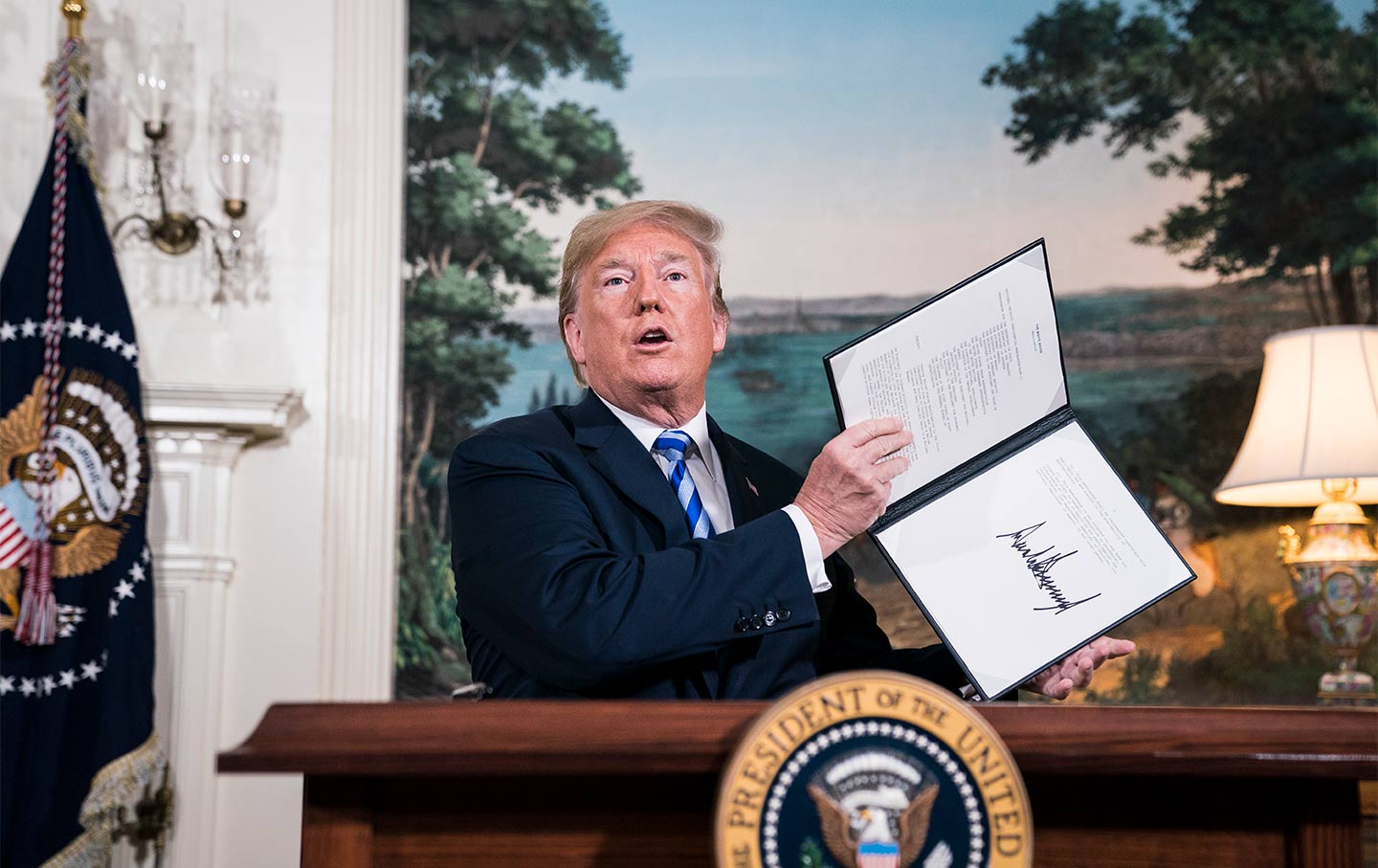
What Will a Peace Movement Look Like Under Trump’s Second Presidency? What Will a Peace Movement Look Like Under Trump’s Second Presidency?
An all-hands-on-deck approach to the coming world of Donald Trump and crew is distinctly in order.
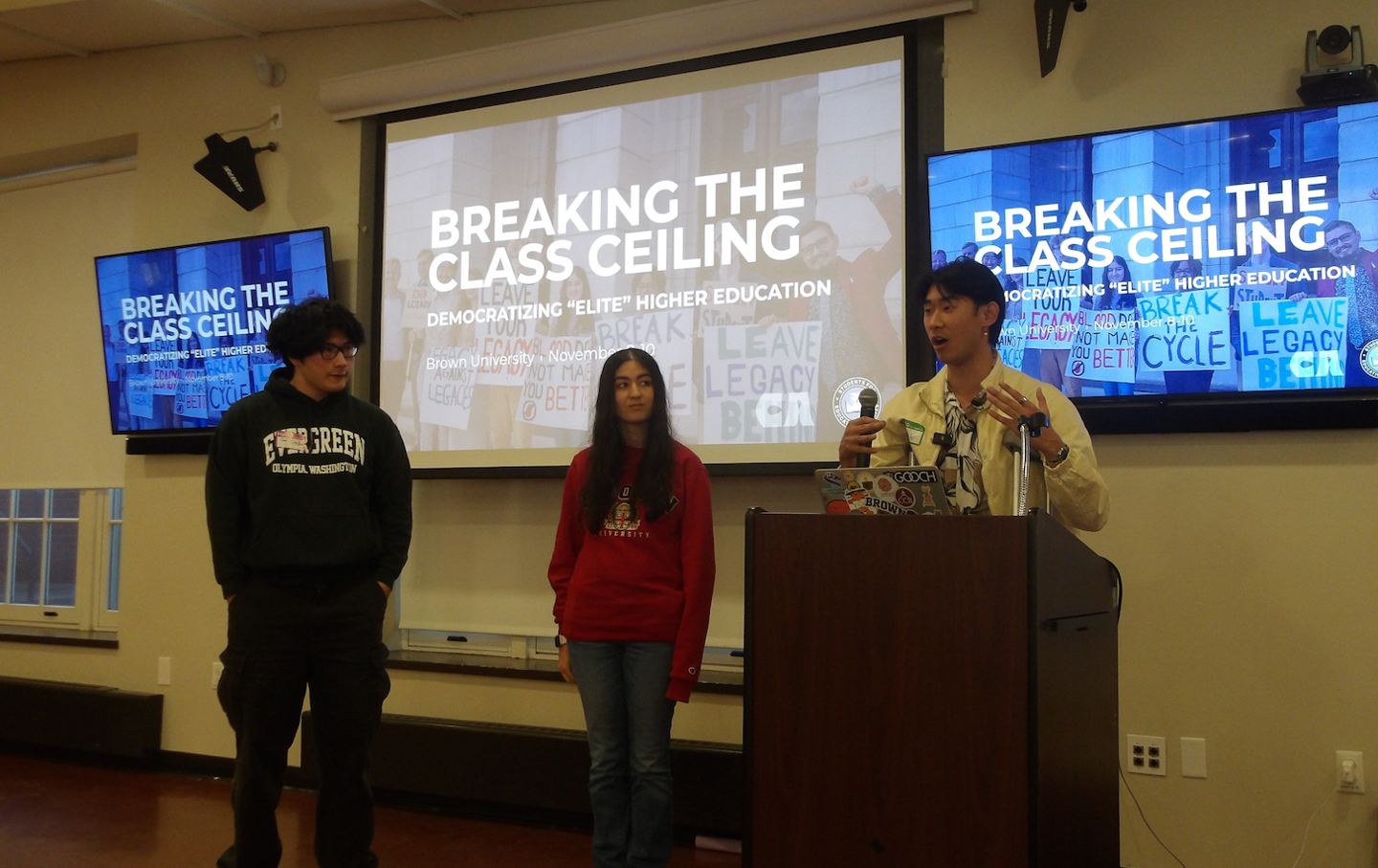
The Elite College Students Fighting to End Legacy Admissions The Elite College Students Fighting to End Legacy Admissions
In November, organizers at more than 18 universities met for a conference with Class Action to discuss how to democratize higher education.
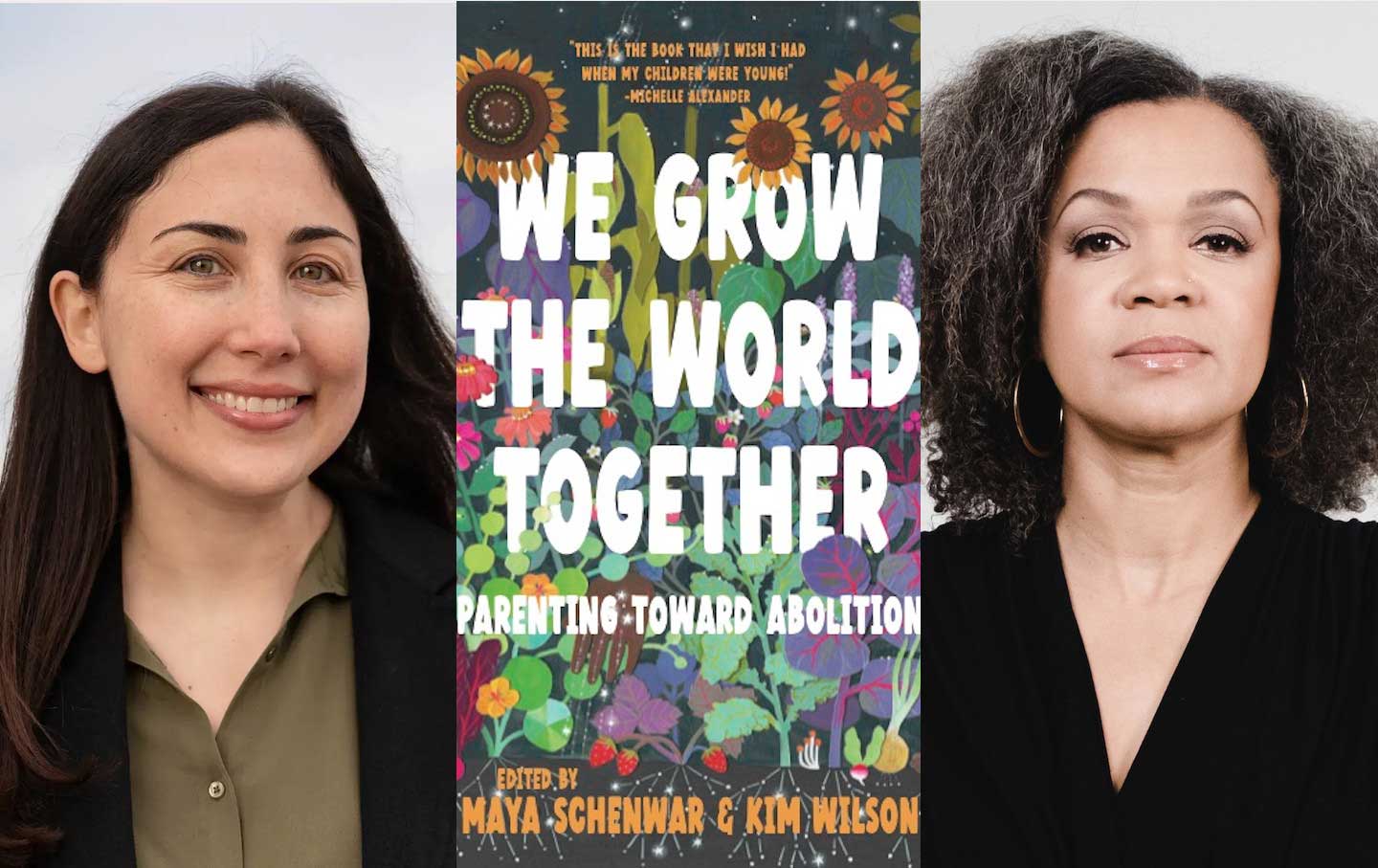
How Love Fuels Resistance: Parenting for Liberation How Love Fuels Resistance: Parenting for Liberation
Maya Schenwar and Kim Wilson discuss their new anthology, We Grow the World Together, about how caregiving and the organizing work of abolitionists can go hand in hand.

Tell Me What You’re Feeling… Tell Me What You’re Feeling…
Cartoonist Mahasen Al-Khatib killed in Gaza strip bombing.

Patriarchy Has Got to Go Patriarchy Has Got to Go
Check out all installments in the OppArt series.

